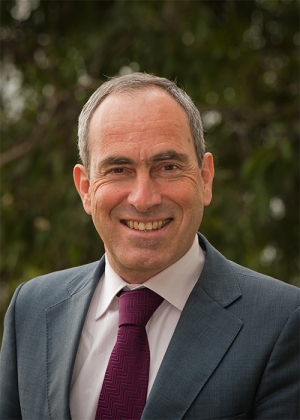Program reduces teen alcohol consumption
Research news
A clamp down on bottle shops selling alcohol to underage customers and a commitment by parents not to supply or allow their teens to use alcohol has been successful in reducing underage alcohol supply in Geelong.
Geelong was one of 14 local communities across three Australian states to participate in a trial funded by an Australian Research Council Linkage Scheme.
The trial, conducted by Deakin University in partnership with Communities That Care Geelong, focused on restricting alcohol supply as a way to reduce adolescent drinking.
Deakin Health Psychology Professor, John Toumbourou, said it was pleasing to see that the trial was successful in reducing the sale of alcohol to underage youth and in encouraging parents to set rules that prevent adolescent alcohol use.
“Alcohol use amongst adolescents continues to be a major public health issue despite national health guidelines clearly stating that the safest option is for young people not to use alcohol before they turn 18. The earlier a young person starts using alcohol the more likely they are to experience injuries and harms, impaired brain development and alcohol problems later in their life,” Professor Toumbourou said.
“We now have the evidence to show that one way to tackle the drinking problem is to bring bottle shops and parents on board to restrict adolescent access to alcohol.”
Deakin surveys undertaken as part of the trial reported in 2012 that 41 per cent of Geelong youth were using alcohol at age 14. When asked where they obtained their alcohol they reported getting it from home and also from bottle shops.
“To reduce underage sales a Deakin team visited bottle shops to check sales to customers that looked underage. The check involved a legal-aged person who had been judged by an independent panel to clearly look under 18 years of age requesting to buy alcohol, with an independent monitor present,” Professor Toumbourou explained.
“The team found that over 80 per cent of staff in Geelong bottle shops sold alcohol without checking age identification in 2012. Letters were subsequently sent to the bottle shop managers alerting them to the sales practices of their staff.
“When the Deakin team returned in 2013 they found that underage sales had significantly declined both in Geelong and across all the 14 target communities Australia-wide.”
To discourage parents supplying alcohol to adolescents, brochures were also distributed in partnership with agencies in Geelong and the other communities across Australia.
An evaluation, led by Dr Bosco Rowland, a Senior Research Fellow in Deakin’s School of Psychology, found the brochures were successful in encouraging parents to not supply or allow adolescent alcohol use.
“The stricter parent rules, together with more bottle shops refusing to sell to underage youth, were found to significantly increase adolescent intentions not to use alcohol until they turned 18,” Dr Rowland said.
“Reducing early age alcohol use has been shown to lead to many benefits for young people and is expected to result in increased school completion rates for Geelong youth in future years.”
The work undertaken during the trial has been funded as part of the Victorian Government's Community Crime Prevention Program.
Parliamentary Secretary for Justice, Mr Ben Carroll MP acknowledged the important work being completed by the Geelong Communities That Care partnership.
“The Communities That Care Geelong partnership are to be congratulated for helping to reduce the sale and supply of alcohol to underage youth,” Mr Carroll said.
“The Andrews Labor Government believes in empowering local communities to address the causes of crime in their own backyards and this is exactly what is happening here in Geelong.
“Glastonbury Community Services, Deakin University and other local agencies are using the Communities that Care model, which is evidence based, to tackle underage drinking which can often lead to offending behaviour.”
Louise McDonald, the Co-ordinator of Communities That Care Geelong, said the next phase of the trial would be to design and implement a strategic plan to increase the delivery of effective child and adolescent health promotion and community-based prevention in Corio, Norlane and Lara.
“We will then be able to monitor and evaluate our plan to measurably increase the healthy development of local children and adolescents. Although we are already celebrating some successes, this is a long-term process that will have benefits across Geelong well into the future,” Ms McDonald said.
Share this story
 Professor John Toumbourou.
Professor John Toumbourou.
